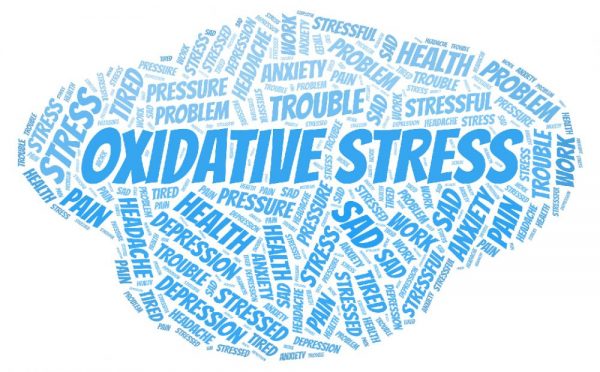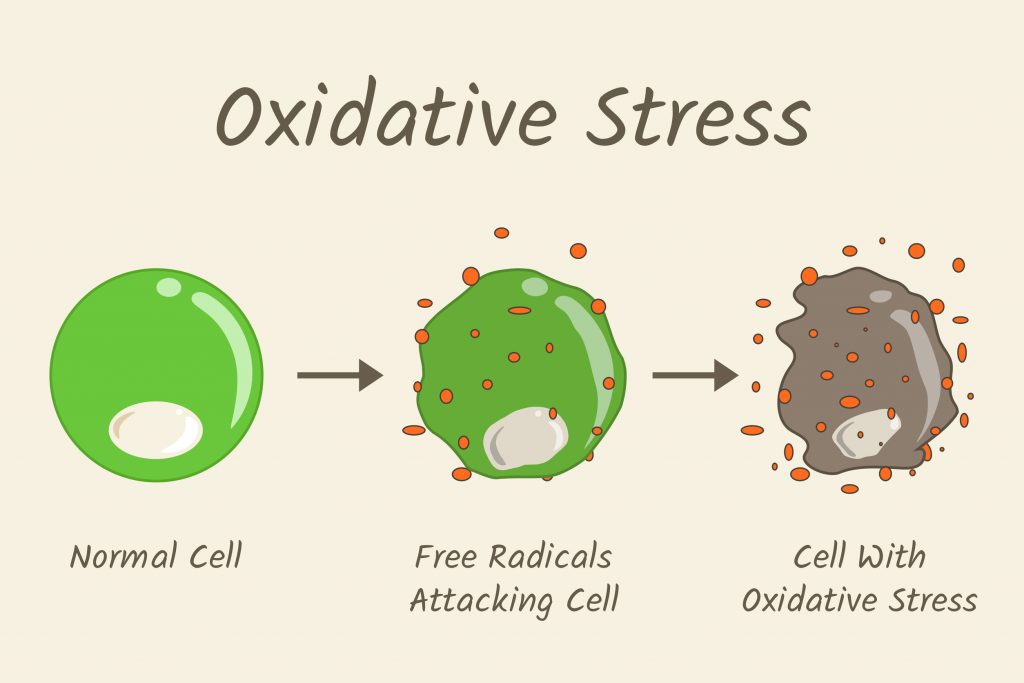
Oxidative Stress…Can you do something about it?
Watch what you eat
I know we’re all busy, and guilty of eating food that is not necessarily the most nutritious, but they are fast and easy to get and keep on with our fast-paced lives.
Oxidation can occur when we eat foods that have been exposed to toxins or we consume excessive processed fat foods and vegetable oils because we induce inflammatory responses within our body. Old cooking oils and other saturated fats are responsible for this. We can use healthy alternatives in our diet, such as olive oil, coconut oil, butter, avocado, nuts and seeds as well as organic vegetables to help combat oxidative stress.
Sugar consumption and our body’s metabolization of sugar contributes to free radicals and oxidative stress. Reducing sugar in our diet as well as supplementing our nutrition with vegetables, and greens helps balance sugar levels and reduces the production of free radicals in our organism.
Include Antioxidants in your diet
Antioxidants neutralize free radical imbalances and protect us from oxidative stress. Eat antioxidant rich food such as berries, spinach, kale, kiwi, beets, carrots, peaches, apples, walnuts, tomatoes, oranges, garlic, onions, avocados, etc which are full of amino acids and vitamins A, C, and E that helps produce glutathione, one of the best known anti-oxidant agents.
Naturally, a balanced diet is ideal, however, many people like me try to complement their nutrition with nutritional supplements such as Moringa, Curcumin, Spirulina, Resveratrol, etc. My personal diet includes two moringa capsules every morning because this plant is one of the most nutritious on earth with lots of vitamins and minerals that we would otherwise get on a diet that includes plenty of vegetables and fruits on a daily basis. I don’t always have the time or the money to buy and prepare nutritious meals during the week, so I found this was a convenient option for me.

Avoid exposure to environmental toxins
It is well known that toxins such as pesticides, cigarette’s smoke, chemical solvents, heavy metals and radiation penetrate our organism and generate free radicals contributing to imbalances and oxidative stress.
Become a smart buyer by choosing organic foods whenever possible, environment friendly cleaning products and chemical-free personal care items. Use glass containers instead of plastic containers for food handling, buy dietary supplements from trusted brands that test for heavy metals, drink filtered water and reduce exposure to radiation or cigarette smoke environments.
Take care of your mental well-being and sleep habits
Prolonged psychological stress and anxiety can lead to oxidative stress through higher activity in the Hypothalamic Pituitary Adrenal Axis related to cortisol release (Aschbacher et al 2013). A recent study in 2017 also found that prolonged stress is precursor to inflammation which is a biological process that also contributes to oxidative stress and in many cases results in chronic diseases.
A 2012 study also found that sleep deprivation contributes to inflammatory responses which support the release of oxidant agents (Faraut et al 2011).
It is important to maintain healthy sleep habits and take steps within our reach to reduce stress or re-adjust our lifestyle whenever possible to stay away from stressful environments. There are supplements that help support our response to stress and anxiety such as Ashwagandha, Tulsi, Rhodiola and others.
A little bit of exercise will also go a long way.
So, what are you doing today to avoid oxidative stress?
References
Aschbacher K, O’Donovan A, Wolkowitz OM, Dhabhar FS, Su Y, Epel E. Good stress, bad stress and oxidative stress: insights from anticipatory cortisol reactivity. Psychoneuroendocrinology. 2013;38(9):1698-1708. doi:10.1016/j.psyneuen.2013.02.004
Liu YZ, Wang YX, Jiang CL. Inflammation: The Common Pathway of Stress-Related Diseases. Front Hum Neurosci. 2017;11:316. Published 2017 Jun 20. doi:10.3389/fnhum.2017.00316
Faraut B, Boudjeltia KZ, Vanhamme L, Kerkhofs M. Immune, inflammatory and cardiovascular consequences of sleep restriction and recovery. Sleep Med Rev. 2012;16(2):137-149.
